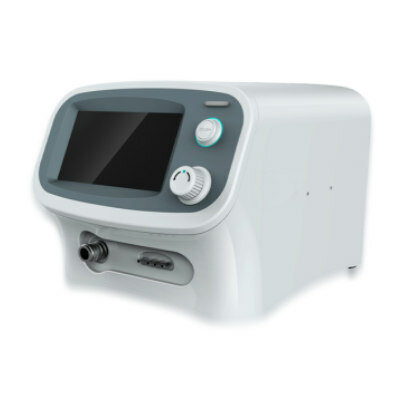AI-Enabled Digital Stethoscope Doubles Detection of Pregnancy Heart Failure
|
By HospiMedica International staff writers Posted on 05 Sep 2024 |

Peripartum cardiomyopathy (PPCM), a potentially life-threatening form of heart failure during pregnancy, often goes undiagnosed due to its symptoms—such as shortness of breath, extreme fatigue, and difficulty breathing when lying down—being mistaken for normal pregnancy discomforts. The condition can worsen as pregnancy progresses or postpartum, posing serious risks if the heart weakens significantly. Effective treatments are available, ranging from medications to more extreme measures like heart pumps or transplants in severe cases. Early detection is crucial for managing the condition and safeguarding maternal health. Now, late-breaking research presented at ESC Congress 2024 underscores the benefits of an AI-enabled digital stethoscope, which identified twice as many PPCM cases as traditional screening methods used in usual obstetric care.
This innovative approach was tested by researchers from the Mayo Clinic (Rochester, MN, USA) in Nigeria, where pregnancy-related heart failure rates are the highest globally. The study demonstrated that using AI-enhanced tools, including a digital stethoscope, was twelve times more likely than conventional methods to detect heart pump weakness at an ejection fraction below 45%—a critical threshold for PPCM diagnosis. The randomized, controlled, open-label trial involved nearly 1,200 participants who were screened either through standard obstetric care or with the aid of AI technologies. The Mayo Clinic had developed a 12-lead AI-electrocardiogram (ECG) algorithm to predict weak heart pumps that was adapted by Eko Health (Oakland, CA, USA) for its FDA-cleared digital stethoscope to identify low ejection fraction heart failure.
Published in Nature Medicine, the study results show that the AI-based screening tools, including the digital stethoscope and 12-lead ECG, effectively detected reduced heart function. In the study, the use of these AI tools resulted in identifying twice as many cases with an ejection fraction under 50%, and were twelve times more likely to detect ejection fractions under 45% compared to the usual care group. The AI tools were assessed at three diagnostic thresholds for ejection fraction: under 45% for PPCM, under 40% for heart failure with reduced ejection fraction, and under 35% for severe heart pump dysfunction, necessitating intensive management and possibly an implantable defibrillator if conditions do not improve. An initial echocardiogram was performed on each patient in the intervention group to verify the AI predictions.
"This study provides evidence that we can better detect peripartum cardiomyopathy among women in Nigeria. However, there are more questions to be answered," said Demilade Adedinsewo, M.D., a cardiologist at Mayo Clinic and lead investigator of the study. "Our next steps would be to evaluate usability and adoption of this tool by Nigerian healthcare providers (including doctors and nurses) and importantly, its impact on patient care. Peripartum cardiomyopathy affects approximately 1 in 2,000 women within the U.S. and as many as 1 in 700 African American women. Evaluating this AI tool in the U.S. will further test its abilities in varied populations and healthcare settings."
Related Links:
Mayo Clinic
Eko Health
Latest Critical Care News
- Mass Manufactured Nanoparticles to Deliver Cancer Drugs Directly to Tumors
- World’s Smallest Pacemaker Fits Inside Syringe Tip

- AI-Powered, Internet-Connected Medical Devices to Revolutionize Healthcare, Finds Study
- Starfish-Inspired Wearable Tech Enables Smarter Heart Monitoring
- AI Eye Scans Could Help Identify Heart Disease and Stroke Risk
- Digital Heart Twin Improves Diagnosis and Treatment of Cardiac Arrhythmias
- First-Of-Its-Kind AI-Powered Probability Scoring System Assesses Heart Failure with Preserved Ejection Fraction
- AI-Assisted Colonoscopy Detects More Polyps but Has Modest Effect on Cancer Risk
- Wearables Could Reduce Need for Continuous Blood Thinners in Patients with Atrial Fibrillation
- AI Model Provides Real-Time Sepsis Risk Alerts for Improving ICU Patient Survival
- AI Algorithm Improves Intravenous Nutrition for Premature Babies
- Smart Mirror Generates AI-Powered Health Insights by Analyzing Facial Blood Flow
- Painless Diabetes Patch to Replace Needle Pricks

- Sensory T-Shirt Monitors Patient’s Vitals After Urological Surgery for Cancer
- Super-Sensitive Radar Technology Warns of Serious Heart Issues
- Thermal Imaging Could Accurately Track Vital Signs for Early Disease Detection
Channels
Surgical Techniques
view channel
New Transcatheter Valve Found Safe and Effective for Treating Aortic Regurgitation
Aortic regurgitation is a condition in which the aortic valve does not close properly, allowing blood to flow backward into the left ventricle. This results in decreased blood flow from the heart to the... Read more
Minimally Invasive Valve Repair Reduces Hospitalizations in Severe Tricuspid Regurgitation Patients
The tricuspid valve is one of the four heart valves, responsible for regulating blood flow from the right atrium (the heart's upper-right chamber) to the right ventricle (the lower-right chamber).... Read morePatient Care
view channel
Portable Biosensor Platform to Reduce Hospital-Acquired Infections
Approximately 4 million patients in the European Union acquire healthcare-associated infections (HAIs) or nosocomial infections each year, with around 37,000 deaths directly resulting from these infections,... Read moreFirst-Of-Its-Kind Portable Germicidal Light Technology Disinfects High-Touch Clinical Surfaces in Seconds
Reducing healthcare-acquired infections (HAIs) remains a pressing issue within global healthcare systems. In the United States alone, 1.7 million patients contract HAIs annually, leading to approximately... Read more
Surgical Capacity Optimization Solution Helps Hospitals Boost OR Utilization
An innovative solution has the capability to transform surgical capacity utilization by targeting the root cause of surgical block time inefficiencies. Fujitsu Limited’s (Tokyo, Japan) Surgical Capacity... Read more
Game-Changing Innovation in Surgical Instrument Sterilization Significantly Improves OR Throughput
A groundbreaking innovation enables hospitals to significantly improve instrument processing time and throughput in operating rooms (ORs) and sterile processing departments. Turbett Surgical, Inc.... Read moreHealth IT
view channel
Printable Molecule-Selective Nanoparticles Enable Mass Production of Wearable Biosensors
The future of medicine is likely to focus on the personalization of healthcare—understanding exactly what an individual requires and delivering the appropriate combination of nutrients, metabolites, and... Read more
Smartwatches Could Detect Congestive Heart Failure
Diagnosing congestive heart failure (CHF) typically requires expensive and time-consuming imaging techniques like echocardiography, also known as cardiac ultrasound. Previously, detecting CHF by analyzing... Read morePoint of Care
view channel
Handheld, Sound-Based Diagnostic System Delivers Bedside Blood Test Results in An Hour
Patients who go to a doctor for a blood test often have to contend with a needle and syringe, followed by a long wait—sometimes hours or even days—for lab results. Scientists have been working hard to... Read moreBusiness
view channel
Expanded Collaboration to Transform OR Technology Through AI and Automation
The expansion of an existing collaboration between three leading companies aims to develop artificial intelligence (AI)-driven solutions for smart operating rooms with sophisticated monitoring and automation.... Read more


















